The Future of 5G in Mobile Phones
The emergence of 5G technology represents a major turning point in the development of mobile networks. The introduction of 5G technology stands to transform mobile phone usage and digital interactions through its combination of ultra-fast speeds and ultra-low latency with superior connectivity. Even though 5G networks are currently being deployed around the globe, mobile phones have only just started to reveal their full 5G capabilities. Through this blog we will investigate how 5G technology will shape mobile phones by examining its effects on mobile usage patterns along with the benefits and challenges it presents and how it will enable innovative new applications.
- 1. This article covers the technology behind 5G alongside its significance in mobile phone advancements.
- 2. The Benefits of 5G for Mobile Phones
- 3. How 5G Will Transform Mobile Experiences
- 4. Challenges Facing 5G in Mobile Phones
- 5. What’s Next for 5G in Mobile Phones?
- Conclusion
- More Related Topics
1. This article covers the technology behind 5G alongside its significance in mobile phone advancements.
The Basics of 5G
The fifth generation of mobile wireless technology 5G offers increased data speeds and capacity alongside reduced latency compared to previous technologies like 4G/LTE. Higher frequency radio waves make up the foundation of 5G technology to deliver quicker data transfer rates and optimize spectrum utilization.
The introduction of 5G to mobile phones produces enhanced download and upload speeds and smoother video streaming while reducing latency for real-time communication and increasing the capacity to connect multiple devices at once. Through its advanced technology mobile phones become stronger and more flexible to meet modern application demands and service functionalities.
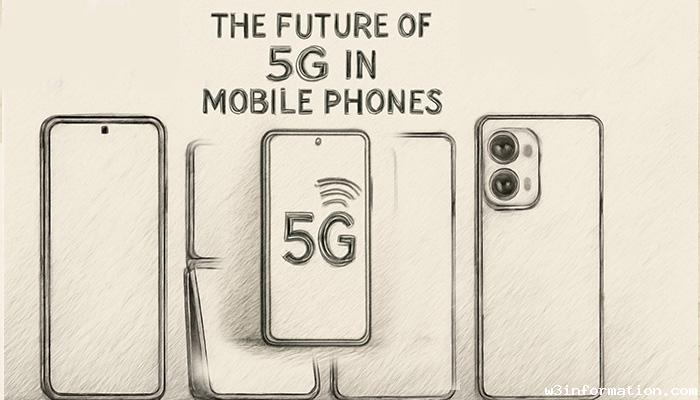
The Role of 5G in Mobile Phones
The introduction of 5G to mobile phones brings about:
- Faster Speeds: The 5G network delivers speeds that reach up to 100 times faster than 4G enabling large file downloads and high-definition content streaming alongside high-performance gaming with minimal lag.
- Lower Latency: 5G's latency reduction to under 1 millisecond makes near-instant communication possible which enables real-time applications like video calling alongside augmented reality (AR) and virtual reality (VR) to function more efficiently and provide richer experiences.
- Higher Capacity: Thanks to 5G technology mobile phones can connect to multiple devices simultaneously without network congestion while maintaining stable connections even in crowded areas.
2. The Benefits of 5G for Mobile Phones
Faster Internet Speeds and Seamless Experiences
- Mobile phones equipped with 5G technology benefit most immediately from substantially faster internet speeds. Users will experience incredibly fast downloads of HD movies in seconds along with uninterrupted streaming of 4K or 8K content and graphically complex gaming with minimal lag thanks to 5G's download speeds which reach up to 10 Gbps against 4G’s 1 Gbps maximum.
- Instant Downloads: Visualize downloading a full 10GB movie file in fewer than 10 seconds. Enhanced 5G speeds will enable these capabilities to become achievable.
- Seamless Streaming: No more buffering. 5G technology allows users to enjoy uninterrupted streaming of high-quality audio and video content in densely populated venues such as stadiums and concerts.
Enhanced Connectivity and IoT Integration
The high capacity of 5G networks ensures mobile devices can manage extensive device connections. The expanding Internet of Things (IoT) ecosystem depends on uninterrupted fast communication because home appliances alongside autonomous vehicles require reliable connectivity.
- Smart Homes: 5G technology will provide enhanced speed and dependability for communication among connected devices including smart thermostats and security cameras.
- Connected Cities: 5G technology enables real-time connections for traffic lights, waste management systems, and environmental monitoring which creates smarter and more efficient urban environments.
Real-Time Applications with Ultra-Low Latency
5G technology achieves latency levels as low as 1 millisecond which enables real-time applications to function without the limitations present in 4G networks. Remote surgery operations and autonomous vehicles as well as live augmented and virtual reality experiences represent applications enabled by 5G technology.
- Autonomous Driving: Real-time communication capabilities of 5G allow vehicles to transmit data to other vehicles and traffic systems which decreases accident risk and makes fully autonomous driving possible.
- Remote Healthcare: The 5G network enables remote surgeries because its real-time video and data transmission capabilities work with robotic surgical tools.
3. How 5G Will Transform Mobile Experiences
Augmented Reality (AR) and Virtual Reality (VR)
5G's fast speeds together with its low latency transforms AR and VR applications into more efficient systems. Mobile phones will deliver more immersive AR and VR experiences that feature reduced latency and enhanced realism. Mobile gaming along with education and entertainment sectors can access new opportunities thanks to technological advancements.
- Mobile Gaming: With the support of 5G technology gamers will enjoy seamless and responsive gameplay in augmented and virtual environments. Multiplayer gaming experiences will improve to allow players from remote locations to connect without interruptions.
- Virtual Shopping: Augmented Reality enables customers to see furniture or clothing items in their living spaces or on their bodies through real-time visuals with minimal latency problems.
Cloud Gaming and 5G
- The advancement of mobile gaming will accelerate cloud gaming development because 5G technology offers superior capabilities. Users will have the ability to stream games from cloud servers to their devices through 5G networks while experiencing low latency and high-quality graphics that match traditional gaming consoles and PCs.
- 5G technology will allow users to play AAA games on their mobile devices without dedicated gaming hardware through services like Google Stadia, Xbox Cloud Gaming and NVIDIA GeForce Now by providing near-zero latency.
4. Challenges Facing 5G in Mobile Phones
Network Deployment and Coverage
Extensive and costly infrastructure deployment presents a major challenge for 5G technology. 5G technology uses high-frequency signals that necessitate the deployment of smaller cell towers and a more extensive network of small cells to provide reliable signal strength unlike 4G which depends on larger cell towers. Achieving widespread 5G coverage will take time with rural areas being the most affected regions.
High Costs of 5G Devices
The prices of 5G smartphones remain high at present with flagship models being particularly expensive. As 5G phone prices decrease in the future consumers will need to invest in new devices to transition to 5G. The financial barrier associated with 5G devices will delay their widespread adoption.
Energy Consumption and Environmental Impact
The deployment of 5G networks and devices demands increased energy consumption which brings attention to potential environmental impacts. 5G networks must integrate energy-efficient technologies to reduce their carbon emissions.
5. What’s Next for 5G in Mobile Phones?
Widespread Adoption and Future Innovations
By 2025 most smartphones should operate on 5G as carriers build wider coverage and lower expenses. Budget smartphones will soon offer 5G capabilities which will expand access to this technology for a broad audience.
The Rise of 6G
The deployment of 5G continues worldwide while research for 6G technology has already begun. 6G promises to deliver increased speeds up to 1Tbps and broader connectivity that will extend 5G innovations to support groundbreaking applications like holographic communication and sophisticated AI integration.
Conclusion
Mobile phone applications of 5G technology present a highly positive future. 5G holds transformative potential for connectivity and communication while reshaping mobile application landscapes across various industries. The implementation of 5G will bring about quick and dependable mobile experiences across sectors like gaming and entertainment as well as healthcare and IoT.
Network deployment challenges and device costs exist but the advantages of 5G technology are clear. The expansion of 5G networks and reduction in device prices will enable technology to create fresh capabilities for mobile phones as well as other sectors. Mobile connectivity advancements are now visible and they will continue to accelerate in speed while becoming smarter and more interconnected.
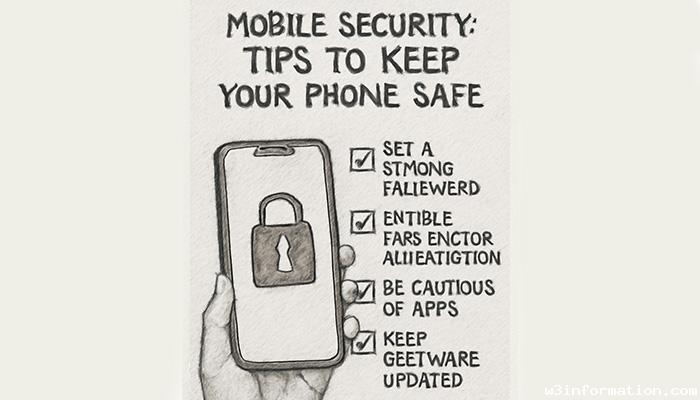 Mobile Security: Tips to Keep Your Phone Safe
Mobile Security: Tips to Keep Your Phone Safe
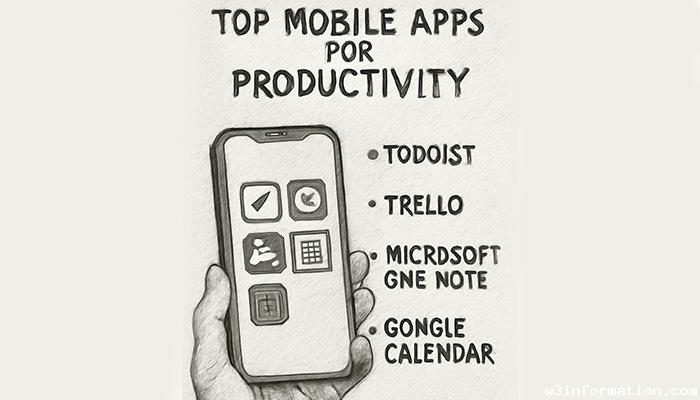 Top Mobile Apps for Productivity
Top Mobile Apps for Productivity
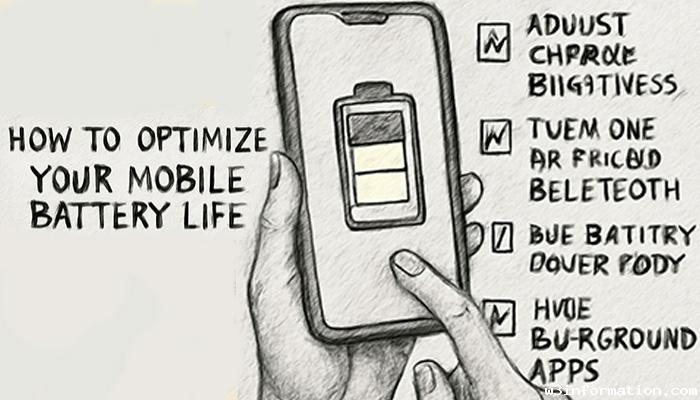 How to Optimize Your Mobile Battery Life
How to Optimize Your Mobile Battery Life
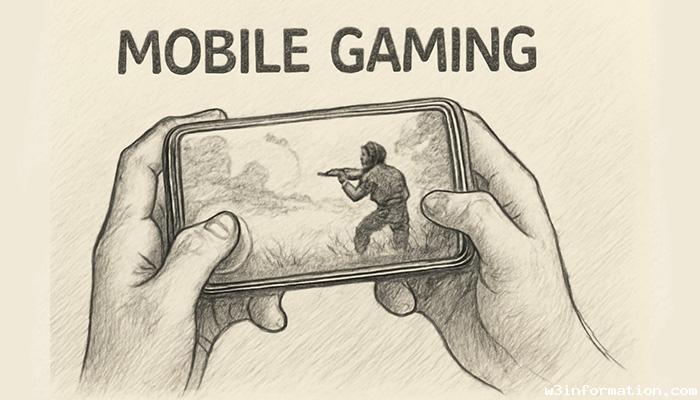 Mobile Gaming: The Best Games in 2025
Mobile Gaming: The Best Games in 2025
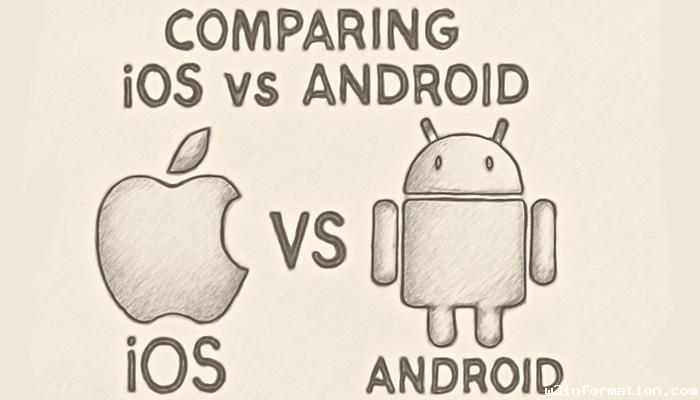 Comparing iOS vs Android
Comparing iOS vs Android